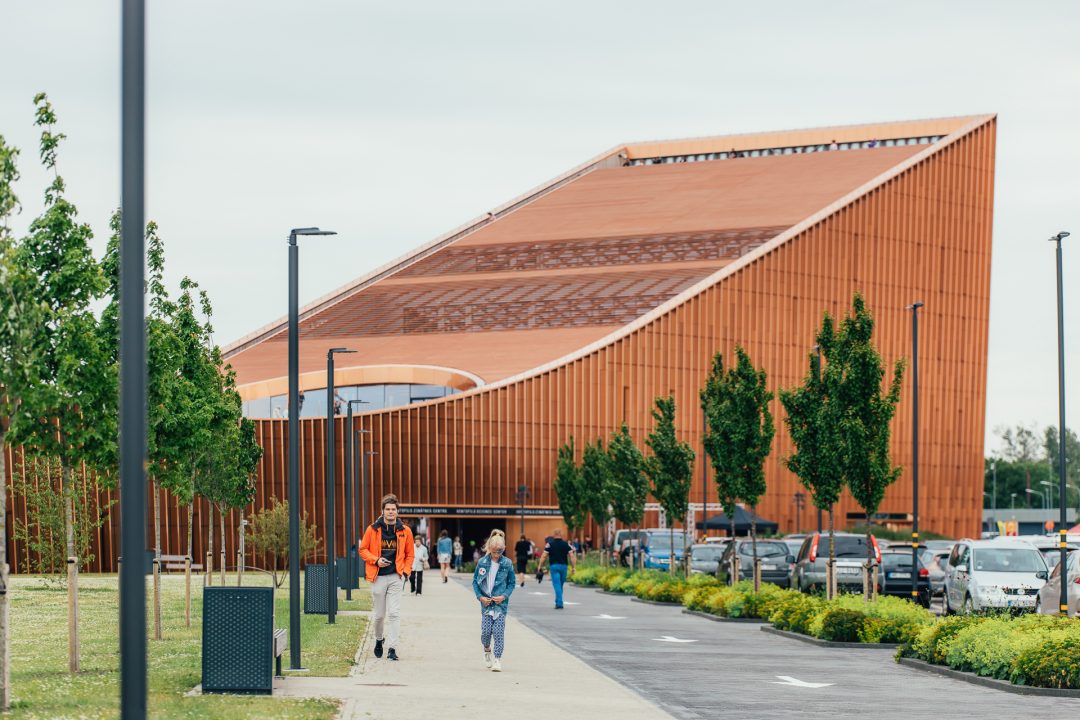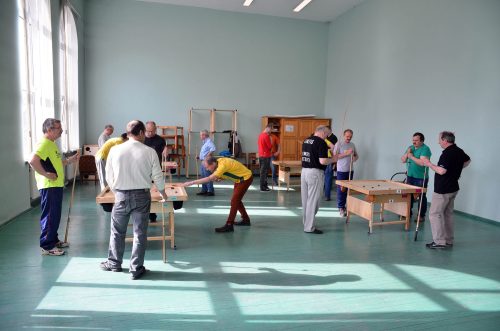On Good Friday, April 18 at 4:00 PM, in the “Latvija” Concert Hall, the concert Stabat Mater will feature outstanding sacred music works composed in different eras – Antonio Vivaldi’s Stabat Mater, Lera Auerbach’s Sogno di Stabat Mater, and Maurice Duruflé’s Requiem.
Performing in the Good Friday concert will be the Ventspils Chamber Orchestra, the mixed choir “Ventspils”, Ilona Bagele (mezzo-soprano), Laura Grecka (mezzo-soprano), Ance Lipste (alto), Rinalds Kandalincevs (baritone), Aigars Reinis (organ), Edgars Vaivods (vibraphone), and Konstantīns Paturskis (violin).
The concert’s artistic director and conductor is Aigars Meri, and the event will be hosted by Liene Jakovļeva.
The Good Friday concert will begin with Antonio Vivaldi’s Stabat Mater, based on a 13th-century Latin hymn to the Virgin Mary. The piece was commissioned by the Church of Santa Maria della Pace in Brescia to be performed during the Holy Week celebrations of 1712. Vivaldi chose to set only the first ten stanzas of the Stabat Mater hymn; however, despite this, the work feels complete, ending with a touching “Amen” that provides a sense of closure.
Unlike the energetic violins and bold sound typical of Vivaldi’s concertos, Stabat Mater is calm and restrained. Modern music scholars have pointed out that it “contains none of the airy Venetian character,” and that its atmosphere is “gentle, yet almost claustrophobically introspective,” reflecting the solemn nature of the text. Although today this work is considered one of the most moving and powerful interpretations of the Stabat Mater, it was forgotten for many years until it was rediscovered in 1939 and brought to performance at Siena’s Music Week by Spanish composer Alfredo Casella.
The Requiem by French composer Maurice Duruflé will be performed in a version never before heard in Latvia. In May 1941, Duruflé received a commission to compose a symphonic poem, but his usual self-doubt and nearly paralyzing perfectionism significantly hindered progress. Eventually, he abandoned the idea of the symphonic poem and turned instead to composing the Requiem, which he dedicated to the memory of his father and completed in 1947.
There is nothing tragic in this Requiem; inspired by Mozart, Duruflé addresses listeners in a simple, human language – quietly, yet meaningfully. The piece exists in three versions, and at the “Latvija” Concert Hall it will be performed with organ accompaniment.
“Maurice Duruflé’s Requiem, by the renowned organist and composer of the Church of Saint-Clotilde in Paris, is one of his most famous works. The virtuosic organ part and the choir’s melodies, inspired by Gregorian chant, lead the listener through a rich and colorful emotional landscape. Although there are dramatic moments within this Requiem, they never evoke a sense of tragedy, but instead invite the listener into a world of beautiful melodicism and hope. This is also affirmed by the final movement In Paradisum – ‘May the angels lead you into Paradise,’” says organist Aigars Reinis.
The most recent of the three compositions is Lera Auerbach’s Sogno di Stabat Mater, written at the request of the renowned violinist and artistic director of the chamber orchestra Kremerata Baltica, Gidon Kremer. The piece premiered in 2009. The composer openly admits that this work was an experiment.
“On the one hand, the goal was to rewrite selected fragments of Pergolesi’s famous masterpiece into a concerto grosso for violin, viola, and chamber orchestra, while remaining faithful to the spirit of the original. On the other hand, I hoped to create a dialogue — a perspective from our time on the same theme. A dialogue can occur on many levels. Is it a dialogue between mother and child, beginning and end, musician and listener, soloists and ensemble, solitude and understanding? Perhaps, in the end, there is not such a great difference between vocal and purely instrumental, sacred language and everyday speech, monologue and dialogue, reality and dream? Any prayer is a dialogue, even if the addressee seems absent,” reflects Lera Auerbach.
The concert is organized by SIA “Kurzemes filharmonija” with the support of the Ventspils City Municipality. Tickets can be purchased at the “Latvija” Concert Hall box office, as well as at all “Biļešu paradīze” sales locations and online at bilesuparadize.lv.






